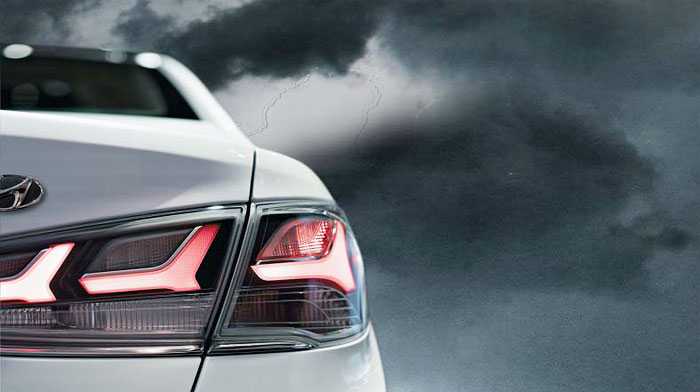Hyundai Suffers Huge Drop in Profits
27 October, 2018

Hyundai Motor reported a third-quarter operating profit of W288.9 billion on Thursday, just one fourth of what it made a year ago (US$1=W1,138). Direct comparison is difficult due to changed accounting methods since 2010, but the operating profit looks similar to what the automaker made 20 years ago.
Hyundai's operating margin stood at a paltry 1.2 percent, which is even worse than the 4.2 percent at the height of the Asian financial crisis in 1998.
Analysts had expected Hyundai to achieve an operating profit of around W800 billion, and the earnings shock sent Hyundai shares tumbling six percent on Thursday.
A combination of factors worked against the auto giant, including weak sales in the U.S. and China, currency woes in emerging countries and a failed marketing strategy as well as the deteriorating economy here.
Hyundai's decline has huge knock-on effects for the Korean economy. The carmaker takes up a whopping 80 percent of domestic automobile production and impacts around 8,000 parts suppliers and Korea's automotive industry as a whole, which employs 400,000 workers and accounts for eight percent of the nation's exports.
Hyundai's troubles contrast sharply with strong sales at rival automakers abroad. GM, Nissan, Renault, Toyota and Volkswagen all achieved operating margins of more than five percent in the first six months of this year.
Yun Chang-hyun at the University of Seoul said, "The car industry is responsible for a huge proportion of hiring, much more so than shipbuilding and construction, and if it sneezes, Korea's entire economy catches a cold."
A company spokesman said, "We've had all adverse factors piling up simultaneously."
The U.S. and Chinese markets account for almost half of its total sales. Sales in China fell from 1.14 million cars in 2016 to just 780,000 last year after Beijing imposed an unofficial boycott on Korean products in March of 2017.
Although sales in China have rebounded this year, Hyundai is not expected to sell more than 900,000 cars there this year, and all Chinese automakers are overtaking their Korean rival. It ranked fifth in car sales in China from 2014 to 2016 but fell to ninth place this year.
In the U.S., Hyundai lacks competitiveness in its growing pick-up truck and SUV markets while Japanese rivals are soaring ahead thanks to the weak yen.
Sales in the Middle East and Southeast Asia fell 6.9 percent and in India 2.7 percent. Sales in Brazil and Russia started to recover from a decline, but Hyundai suffered huge foreign-exchange losses when their currencies plunged 10 to 20 percent compared to the beginning of this year.
An operating margin of 1.2 percent means that Hyundai is running out of money to invest in research and development and that parts suppliers are facing losses. One industry insider said, "If automakers achieve an operating margin of three percent, primary parts suppliers can expect a margin of zero to one percent, while secondary and tertiary suppliers fall into the red. If Hyundai is in such bad shape, parts suppliers are probably close to bankruptcy."
Koh Tae-bong, a senior analyst at Hi Investment and Securities, said, "In the past, poor earnings at Hyundai could be handled by slashing parts costs, but now there's no room left for maneuver and the entire automotive ecosystem could collapse."
Hyundai hopes that it has bottomed out and the only way is up. It plans to overcome the crisis by starting to sell a wider range of SUVs in the U.S. next year. But many analysts doubt a quick recovery as long as Hyundai is plagued by high labor costs and low productivity.
Lee Hang-koo at the Korea Institute for Industrial Economics and Trade said, "GM almost went bankrupt in 2009, Toyota was hit by a massive recall debacle in 2011 and Volkswagen suffered from the diesel-emission scandal in 2015, but they all recovered quickly through restructuring and improving technological developments. But it won't be easy for Hyundai do to that because of its militant union and lack of tech investments."
